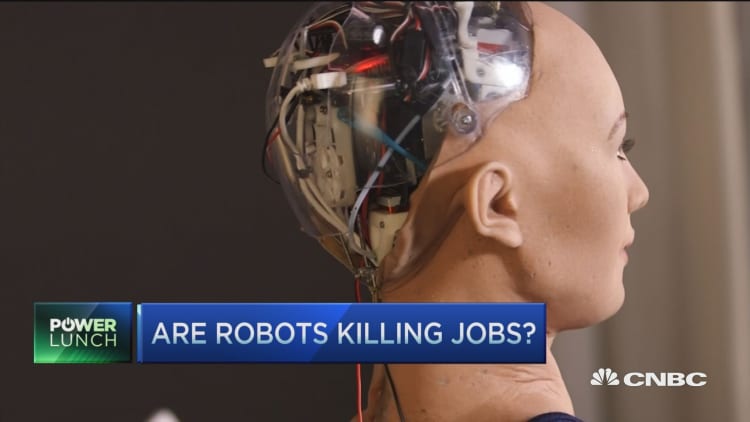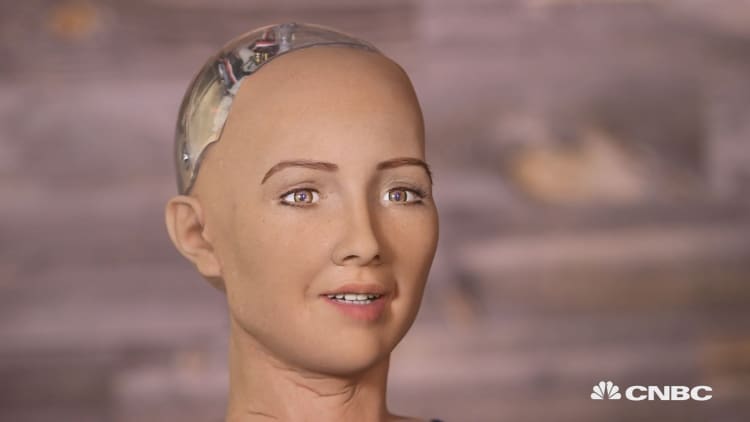


We have a "moral imperative" to accept the benefits of integrating robots into society, an expert told CNBC's "Power Lunch" Friday.
"Robotic cars, self-driving cars — the No. 1 thing they're going to do is save people's lives," said Oren Etzioni, CEO of the Allen Institute for Artificial Intelligence. "People ... are dying on the road every day. Millions of accidents. We can change that. So we really have a moral imperative."
Robots drive down the cost of shipping for Amazon customers, could prevent deaths from car accidents and lighten the economic burden of providing health care to an aging population, Etzioni said. And by worrying about the worst-case scenario, we may be missing out on the best case, Etzioni said.
"These fears of AI turning evil are way overblown," Etzioni said. "The bottom line is these fears are ignoring the technical challenges, the potential benefits — it's like worrying about overpopulation on Mars when we can't even land a person there. ... We shouldn't mistake a clear view for a short distance."
But there is a trade-off. The job market and the military will be the epicenter of that "unprecedented" shift, and the debate that surrounds it, said Martin Ford, author of "Rise of the Robots: Technology and the Threat of a Jobless Future."
"There are many, many positive aspects to this," Ford said. "I definitely would not argue to stop all this at all. What we do need to do, though, is adapt to this and be realistic about the impact that's coming. It's not just going to be dangerous jobs that disappear. It's going to be a lot of jobs that people, in fact, want."





